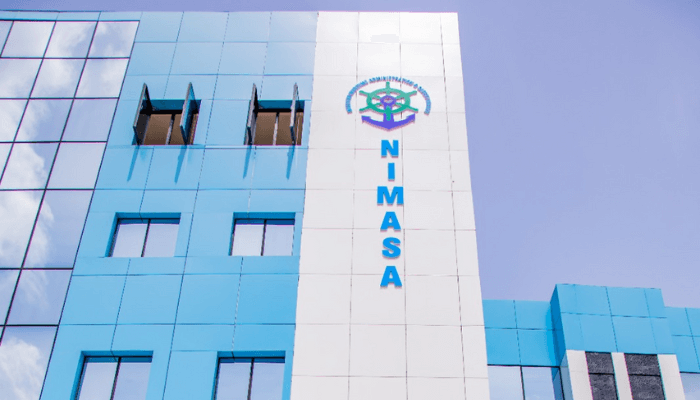The Nigerian Maritime Administration and Safety Agency (NIMASA) has in Port Harcourt restated its commitment to clean offshore environment and the blue economy.
This was done by Fatai Adeyemi, NIMASA’s Executive Director, Operations, who said the agency was committed to a clean offshore environment as the country seeks to maximise opportunities in the blue economy.
He stated this at a stakeholders’ sensitization programme on Offshore Waste Reception Facilities with the theme “NIMASA’s Responsibilities and Statutory Obligation to Provide Offshore Waste Reception Facilities,” in Port Harcourt.
According to him, the programme underscores NIMASA’s unwavering commitment to promoting environmental sustainability and operational safety within Nigeria’s maritime sector.
Adeyemi noted that Nigeria’s offshore environment is vital to the nation’s economy, powering industries and creating livelihoods but was quick to add that the environmental challenges associated with offshore operations require immediate and sustained attention as it poses a grave threat to marine ecosystems, navigational safety, and public health.
“The objective of today’s programme is to increase awareness and strengthen collaboration among all stakeholders—operators, regulators, service providers, and community representatives—to ensure that waste reception and disposal practices meet the highest environmental standards.
“By doing so, we are not only protecting our oceans but also aligning with global best practices and international maritime regulations. The responsibility to safeguard our marine environment rests on all of us, and through concerted action, we can achieve a safer, cleaner, and more sustainable offshore environment.
“I want to assure our stakeholders that on its part, NIMASA is committed to an enduring ecosystem and Blue Economy that emphasizes conformity with international best practices as enshrined in the various laws and global best practices,” he stressed.
Also speaking, Dimowo Heaky, NIMASA’S Director in charge of Marine Environment Management, explained that the programme represents a significant step in the collective journey towards preserving the health and resilience of the oceans and reinforces shared commitment to eliminating intentional pollution from the marine environment.
He noted thus: “Our singular mission is to equip every stakeholder with the knowledge, and best practices needed to ensure that harmful waste do not find their way into our waters. From oily residues and sewage to garbage and noxious liquids, every form of ship-borne waste poses a threat to marine ecosystems, coastal communities, and the global climate.
“By understanding the design, operation, and strategic placement of Offshore Waste Reception Facilities, we can transform policy into practice and compliance into culture. Let us remind ourselves that MARPOL is more than an international convention—it is a pact between humanity and the oceans that sustain us.”
Wellington Agharese, the Managing Director/Chief Executive Officer of XPO Marine, the concessionaire for Eastern Region Offshore Waste Reception Facilities, underscored the region’s importance to Nigeria’s offshore oil and gas activities.
According to him, “As the concessionaire entrusted with offshore waste management under the MARPOL Convention for Nigeria’s Eastern Region, the moment represents not just an operational mandate, but a collective commitment to safeguarding our marine environment while enabling sustainable offshore energy development.”
“With that comes the responsibility to ensure that exploration and production do not compromise the health of our waters, our coastal communities, or our global reputation as a responsible energy-producing nation.
“We recognize that this responsibility cannot be carried out in isolation. Collaboration with regulators, IOCs, NOCs, and indigenous operators is critical. Together, we can establish a model of environmental compliance that rivals any in the world. By doing so, we also strengthen Nigeria’s competitiveness in the global energy market, where environmental compliance is now a key determinant of investment and partnerships,” he summed up.









